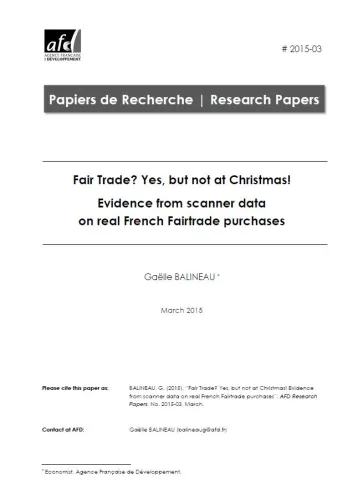Share the page
Fair Trade? Yes, but not at Christmas! Evidence from scanner data on real French Fairtrade purchases
Published on

Responsible consumption based on labels arouses enthusiasm among the community of development (donors, NGOs, researchers, policy makers). Indeed, information provision may appear as a “third wave” of regulation (Tietenberg, 1998), both less costly and more efficient than “command-and-control” or market-based instruments, particularly for commons or global public goods. However, analysis of responsible consumption is still scarce, particularly in economics. Relying on household scanner data on real French Fairtrade and conventional purchases to estimate a system of demand, this article shows that aside from income, standard consumer attributes are not relevant to profile the responsible consumer, particularly compared to variables that are more studied by marketing and business fields such as ‘attitudes’. The empirical analysis suggests that Fairtrade goods are still luxury goods, and that the role of information, trust, and product attributes in explaining consumption choices should be worth studying in deeper aspects and details than it is currently the case.
Useful Information
-
Edition
-
3
-
Number of pages
-
44
-
ISSN
-
2492-2846
-
Collection
-
Research Papers
